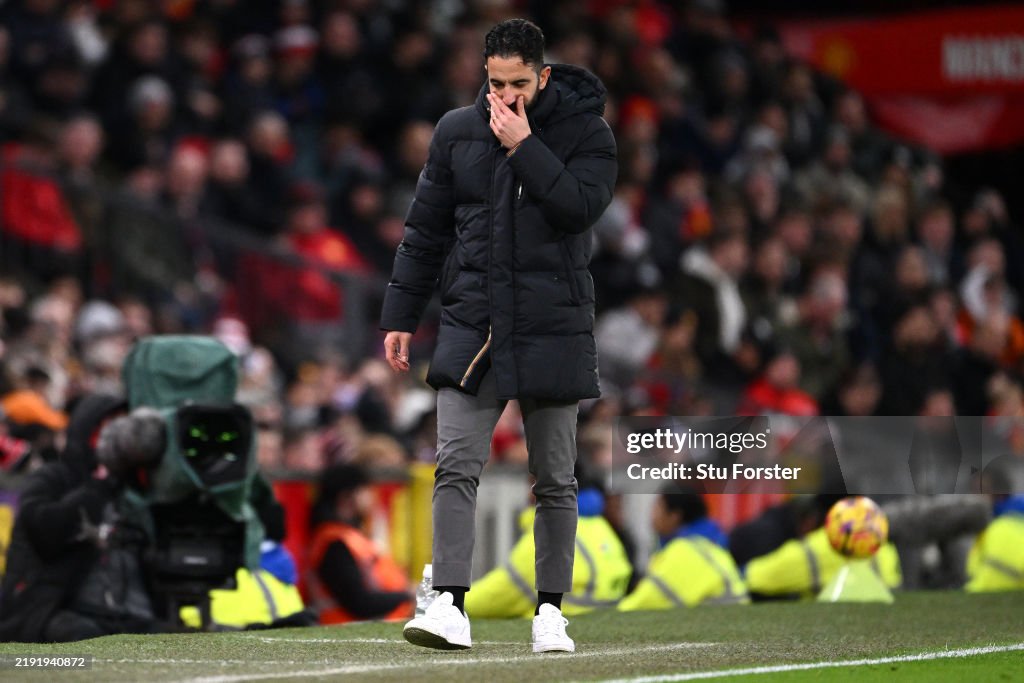Rio Ferdinand, a former Manchester United and England national team central defender, has offered his thoughts on the current challenges facing Manchester United and the approach of head coach Rúben Amorim.
Ferdinand believes Amorim should persist with his philosophy and tactical approach despite the team’s recent struggles, which include a string of poor results that have intensified scrutiny on both the manager and the players.
On his podcast, "Rio Ferdinand Presents," the former defender reflected on Amorim’s approach to managing the club during this turbulent period. “We look at him and think, ‘He still seems quite confident in the long term. He’s not going to change his ideas in the short term.’ And I completely agree,” Ferdinand began. “If he changes and goes back to what they were doing before… it’s not like they were winning! So why would he return to what the players are more comfortable with? I think his idea and I have to agree with him is that if this team is trained and understands the system, then I believe they have a chance to achieve what he wants.”
Ferdinand acknowledged the magnitude of the task Amorim faces in reshaping Manchester United, a club that has long struggled to regain its identity and success since the departure of Sir Alex Ferguson. He emphasized that reverting to old methods is unlikely to solve the underlying issues. “I don’t think we can expect Amorim to go back to the way they were playing before to try to steady the ship. Because, in any case, it wasn’t a stable ship. I genuinely believe he has to keep doing what he’s doing. He said there would be early struggles though maybe not as bad as what we’re seeing now but I don’t think he realized what he was getting into. The scars that many of these players carry, both individually and as a team, are so big and so deep that it’s going to take a long time to recover.”
The "scars" Ferdinand referred to highlight the long-standing psychological and structural issues within the squad. Years of inconsistent management, a revolving door of players, and mounting pressure from fans and media have left their mark. Ferdinand argued that Amorim’s long-term vision is crucial for sustainable success, even if it comes with short-term pain.
The pundit also took time to analyze specific players who have been underperforming in Amorim’s system. Among those, Ferdinand singled out Casemiro and Christian Eriksen, two experienced midfielders who have faced significant criticism for their recent displays. “I think we’re looking at two players in this team who were heavily criticized after yesterday: Casemiro and Eriksen,” he said. “One of the key elements of this system is that it requires legs and physicality. And for Eriksen and Casemiro, those are probably the weakest parts of their games, which doesn’t help.”
Despite this, Ferdinand expressed confidence in Amorim’s ability to work with the squad. He argued that if the team is given time to adapt to the manager’s philosophy, even players who seem out of place could begin to thrive. “But I still believe that if they could train and Amorim could implement his philosophies, these two players wouldn’t look so out of place. So, I don’t think it’s as simple as saying, ‘Let’s put in two more mobile players and everything will improve.’ I still think we’ll have the same problems.”
Ferdinand’s comments also touched on the challenges of introducing a new playing style at a club like Manchester United, where expectations are high and patience is often in short supply. He praised Amorim’s courage in sticking to his principles but warned that the process of transformation is rarely straightforward. “This is Manchester United we’re talking about. It’s a club where every decision is scrutinized, every result is magnified. But if you don’t stick to a plan, you’re just going to keep going in circles. Amorim knows this, and I think that’s why he’s staying true to his approach.”
Looking ahead, Ferdinand believes the road to recovery will require more than tactical adjustments or personnel changes. He highlighted the importance of addressing the mental and emotional resilience of the squad, as well as fostering a collective belief in Amorim’s vision. “The scars on these players aren’t just physical; they’re mental and emotional. The club has been through so much upheaval, and that takes a toll. Amorim is trying to build something long-term, and that’s never easy, especially at a club like United.”
Ferdinand concluded by urging fans and the club’s hierarchy to show patience and support. “You don’t build success overnight, especially not at a club where the pressure is this immense. Amorim needs time, and the players need to fully buy into his ideas. It’s going to take time, but I believe it’s the right path.”
His analysis underscores the complex challenges facing Manchester United as they attempt to rebuild under Amorim’s leadership. While setbacks are inevitable, Ferdinand’s perspective offers a reminder that true transformation requires persistence, patience, and a commitment to a long-term vision. Whether the club can rally behind Amorim and weather this difficult period remains to be seen, but the stakes could not be higher for one of football’s most iconic institutions.


